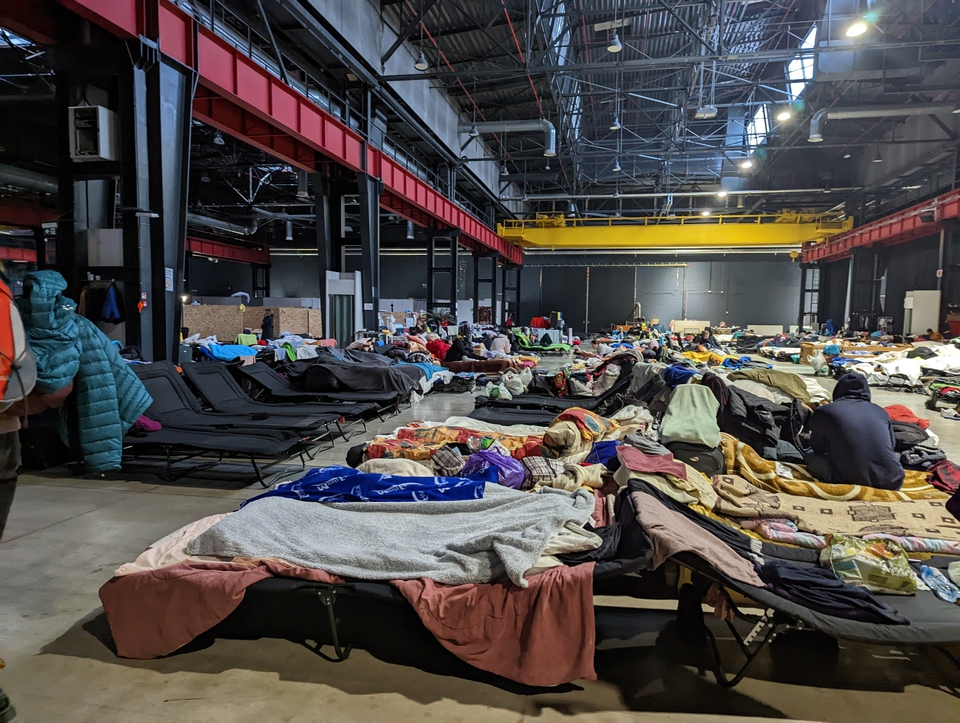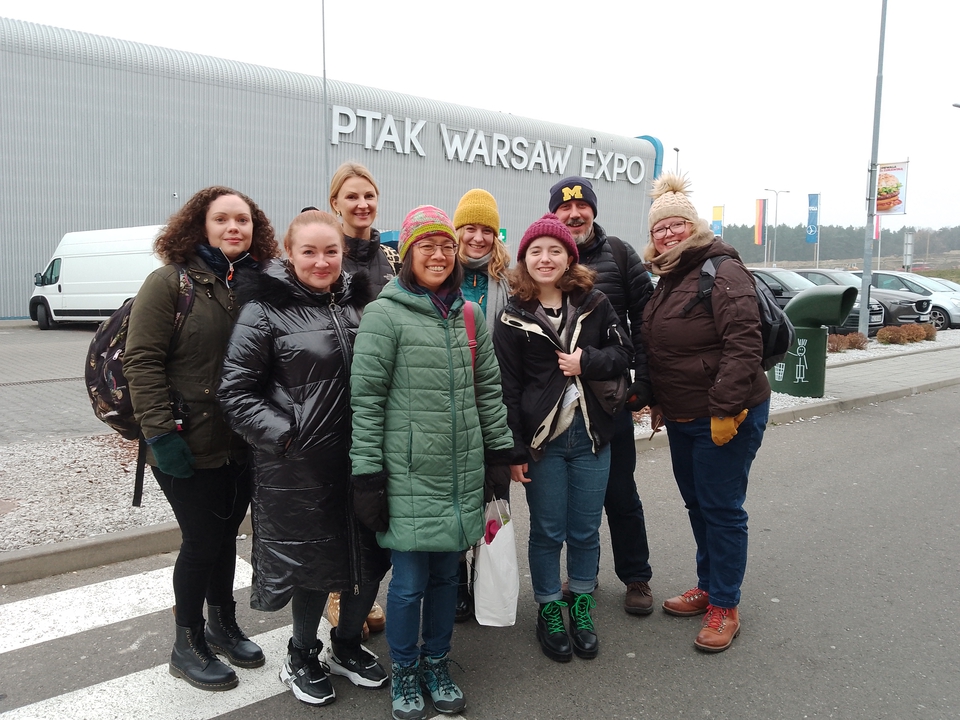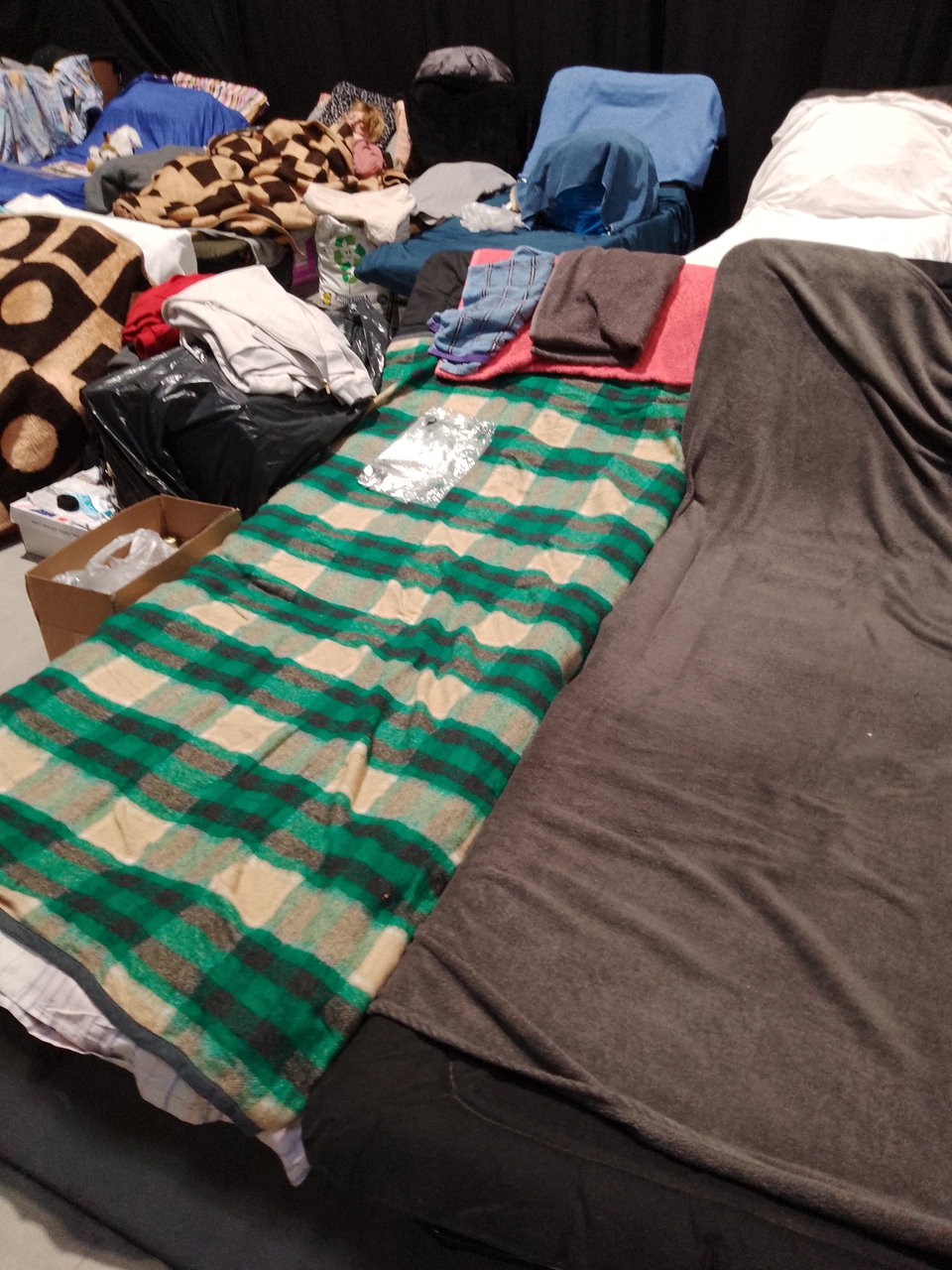-
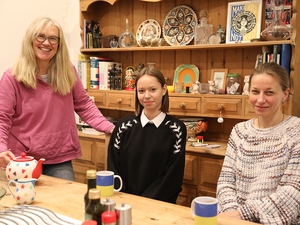
22 March 2023
Refugees preparing to welcome hosts to Ukraine
Mother and daughter Olha and Dasha came to the UK as part of our diocese’s ... read more
-
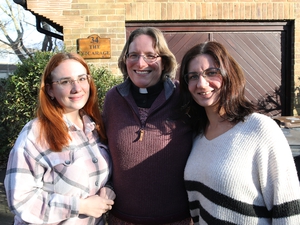
21 February 2023
Vicar hosts Ukrainian refugees as our diocese relaunches appeal
Hayling Island vicar Jenny Gaffin is hosting two Ukrainian refugee families in her vicarage as ... read more
-
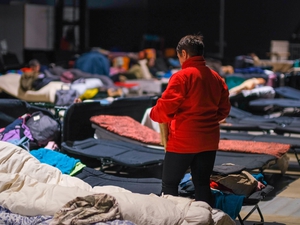
8 February 2023
Seeing refugees in Poland was an eye-opener
Our refugee co-ordinator Maricar Jagger visited Poland to see for herself the conditions Ukrainian refugees ... read more
Seeing refugees in Poland was an eye-opener
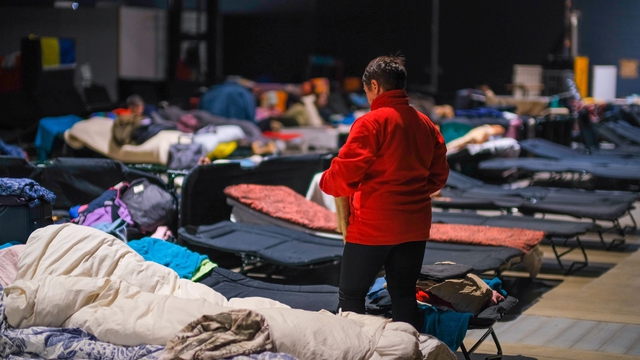
SHE has been matching Ukrainian refugees with hosts in our diocese for almost a year - but a trip to Poland brought home what it feels like to be displaced from home.
Maricar Jagger shares the job of refugee co-ordinator for Portsmouth and Winchester dioceses with Jo West. They work alongside the charities Citizens UK and USPUK (Ukrainians Sponsorship Pathway UK), and have placed 51 refugees with 22 families in our diocese. She visited two refugee centres in Warsaw, Poland, last November, to see for herself the conditions refugees endure before they reach us.
“It was such an unforgettable experience,” she said. “The centres are in large exhibition arenas outside the city centre, making access to jobs and amenities difficult. In one they were lucky to have a supermarket nearby. At the other, they have only a McDonald’s and a petrol station. There were no places to sit outside, just a big car park. While people are safe and warm, there is still more to be done.
“Buses still arrive daily with fresh groups of refugees. When I visited, there were around 1,500 ‘residents’ of one centre, all waiting for a home. Charity staff said at the height of the refugee influx in the spring, they had as many as 15,000 people. I couldn’t imagine that many people packed into the centre. They must have used every inch of the floor.
“On arrival, you can choose any unoccupied camp bed. They are lined up closely to each other and there’s no space to put your things. There’s nothing to keep you private and above you is a vast convention hall ceiling. Clothes are spread out on door handles and a few makeshift lines to dry. They have washing machines, but toilets and showers are housed in a couple of container-like boxes.
“There’s a kitchen and twice a day everyone is given a hot meal. There are strict rules however for using the space so they can manage the numbers. There is no fridge or food storage area. If you have a severe allergy, there’s a small fridge for your food. Everybody else can only keep food by their camp bed.
“There were rooms for a makeshift hospital ward for those having medical treatment. There are classes for children, with volunteer teachers or a place they can go for their learning online. There’s even a piano and a pool table. Volunteers came in the summer who were able to entertain the children with singing and dancing or take them to visit a park.
“We were shown makeshift walls the staff were trying to slowly build. They receive donations for clothes and toiletries, but need to buy these wood planks themselves. The privacy they give is very important for people’s sense of dignity.
“I was shaken after my visit and couldn’t take the picture of the camp bed out of my mind. On my way home, I read where Winnie the Pooh tells Piglet he can come to live with him if Piglet’s house is destroyed, and I was sobbing silently in a crowded tube.”
Our diocese now wants to host 100 more refugees, and so we want to find 50 more hosts willing to open their homes. If you can help, find out more details here.
